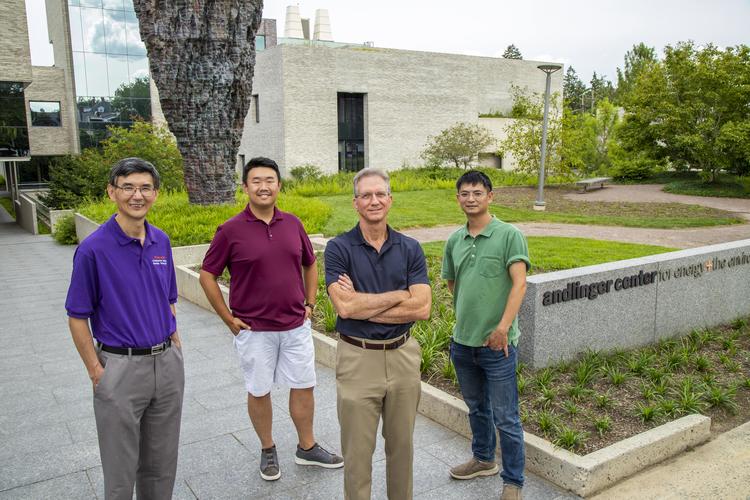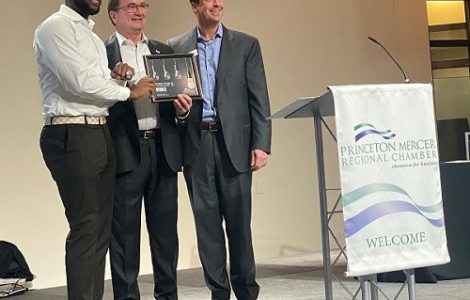Bruce Koel, Yiguang Ju, Chao Yan, and Xiaofang Yang: Recycling lithium-ion batteries

A new method for recycling lithium-ion batteries could help solve the looming shortage of critical metals, including lithium, cobalt, nickel and manganese, while reducing waste.
The demand for lithium-ion batteries is likely to increase as auto manufacturers boost production of electric and hybrid vehicles. Yet the recycling of lithium-ion batteries requires high amounts of energy and produces significant chemical waste.
Princeton researchers have invented an acid-free and energy-efficient process for regenerating the lithium-bearing oxide materials as well as other valuable metals from the batteries. Today’s techniques rely on acids to dissolve battery materials, resulting in the generation of waste that is harmful if released to the environment.
The team has pioneered a multistep battery-recycling approach. They start by detaching battery materials from their housings with water-based solutions to physically separate the positive and negative electrode materials. Additional steps filter intact and damaged particles.
They then expose the positive electrode materials to a low-temperature plasma, a gas containing charged molecules and electrons. The plasma reacts with electrode contaminants, allowing the removal of these contaminants at low temperature without using acids.
The final step is recovery of the particle shape and crystalline structure of the materials to create new battery electrode materials. The team has formed a startup company, Princeton NuEnergy, to develop the technology.

"Our method of battery recycling offers advantages in cost savings, energy efficiency and environmental protection." – Bruce Koel
Innovators:
Bruce Koel, Professor of Chemical and Biological Engineering and Co-founder, Princeton NuEnergy
Yiguang Ju, Robert Porter Patterson Professor of Mechanical and Aerospace Engineering and Co-founder, Princeton NuEnergy
Chao Yan, Co-founder and Chief Executive Officer, Princeton NuEnergy
Xiaofang Yang, Co-founder and Chief Technology Officer, Princeton NuEnergy
Development status:
Princeton NuEnergy, a startup based in Bordentown, New Jersey, is developing
the technology.
Funding:
U.S. Department of Energy Small Business Innovation Research (SBIR) Phase II;
New Jersey Commission on Science, Innovation and Technology;
Princeton University Intellectual Property Accelerator Fund
Learn more:
Email: info@pne-old.beaconfireinc.com
Website: pne-old.beaconfireinc.com(Link is external)
Licensing contact:
Anthony Williams
New Ventures Associate
Office of Technology Licensing
Email: anthonyw@princeton.edu



